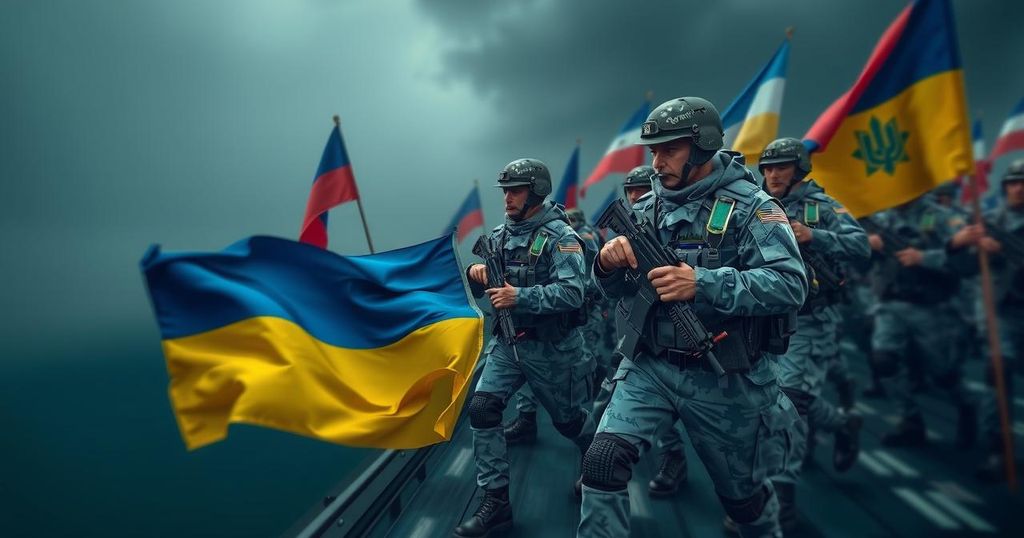Recent Developments in the Ukrainian Crisis: North Korea and Trump’s Election
Two pivotal events have altered the Ukrainian crisis: the arrival of North Korean troops in Russia and Donald Trump’s election as US President. This shift embodies a significant internationalization of the conflict and may lead to a new strategic direction, including a focus on ‘peace through strength’ and enhanced military support from Western allies. The evolving dynamics present both risks and opportunities for Ukraine amidst ongoing hostilities.
The Ukrainian crisis has recently experienced significant shifts due to the arrival of North Korean troops in Russia and the election of Donald Trump to the United States presidency. The deployment of approximately 10,000 North Korean soldiers alongside weapons deliveries has represented a crucial internationalization of the conflict, a notable shift from historical norms where Western powers primarily intervened in Asian affairs. This unprecedented involvement raises the stakes in what has become a multifaceted geopolitical conflict. In response to these developments, President Joe Biden authorized Ukraine to use US-made ATACMS long-range missiles to strike Russian targets, a move aimed at countering the newly intensified conflict dynamics. However, such actions are perceived as reactive rather than proactive and may not significantly alter the trajectory of the war. Allied nations, including the United Kingdom and France, have also increased their military support for Ukraine in light of these escalations. The election of Donald Trump emerges as a diplomatic turning point, with the President-elect signaling a commitment to resolving the Ukrainian conflict, an agenda point he emphasized during his campaign. Ukrainian President Volodymyr Zelensky has shown optimism regarding this potential shift, which could mitigate the uncertainty created by previous hesitations from the Biden administration. Zelensky notably remarked on Trump’s principle of ‘peace through strength,’ reflecting a desire for a more decisive American stance in negotiations. Former National Security Adviser Robert O’Brien has articulated a vision of providing lethal aid to Ukraine financed by European partners, while simultaneously maintaining open channels for diplomacy. This position advocates for a strategic unpredictability aimed at unsettling Moscow, indicating a potential new approach under Trump’s leadership that aims to balance military readiness with diplomatic efforts to end the ongoing violence.
The context surrounding the Ukrainian crisis reflects a complex interplay of military and political dynamics that have escalated dramatically in recent months. The war, which has resulted in extensive loss of life and significant regional instability, has drawn various global powers into its orbit, particularly following the unprecedented arrival of North Korean troops in Ukraine’s conflict landscape. This involvement marks a departure from previous historical precedents and underscores the increasing global implications of localized conflicts. Furthermore, the anticipated change in American leadership with Trump signifies a potential shift in foreign policy that could influence the direction of efforts to negotiate an end to the conflict.
In summary, the recent developments in Ukraine, including North Korea’s military involvement and Donald Trump’s impending presidency, represent significant turning points in an already volatile situation. These events hint at new strategies and diplomatic initiatives that may emerge in the coming months, particularly as Ukrainian leaders seek to redefine their international partnerships against the backdrop of escalating tensions with Russia. The combination of military assistance and diplomatic willingness will play a crucial role in shaping the future of Ukraine’s territorial integrity and regional stability.
Original Source: www.lemonde.fr




Post Comment